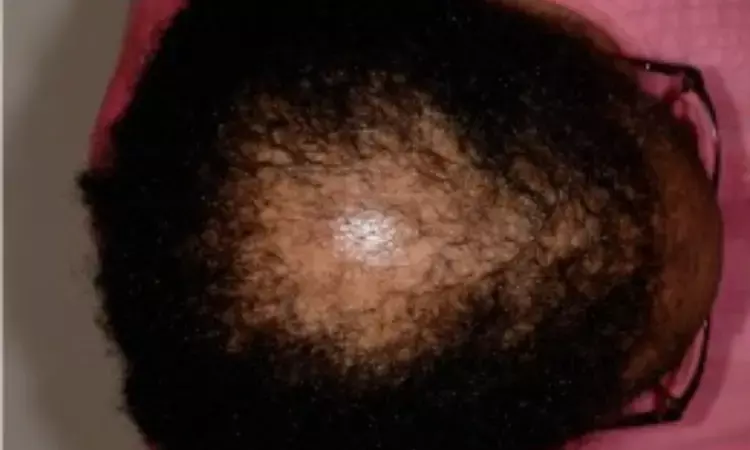- Home
- Medical news & Guidelines
- Anesthesiology
- Cardiology and CTVS
- Critical Care
- Dentistry
- Dermatology
- Diabetes and Endocrinology
- ENT
- Gastroenterology
- Medicine
- Nephrology
- Neurology
- Obstretics-Gynaecology
- Oncology
- Ophthalmology
- Orthopaedics
- Pediatrics-Neonatology
- Psychiatry
- Pulmonology
- Radiology
- Surgery
- Urology
- Laboratory Medicine
- Diet
- Nursing
- Paramedical
- Physiotherapy
- Health news
- Fact Check
- Bone Health Fact Check
- Brain Health Fact Check
- Cancer Related Fact Check
- Child Care Fact Check
- Dental and oral health fact check
- Diabetes and metabolic health fact check
- Diet and Nutrition Fact Check
- Eye and ENT Care Fact Check
- Fitness fact check
- Gut health fact check
- Heart health fact check
- Kidney health fact check
- Medical education fact check
- Men's health fact check
- Respiratory fact check
- Skin and hair care fact check
- Vaccine and Immunization fact check
- Women's health fact check
- AYUSH
- State News
- Andaman and Nicobar Islands
- Andhra Pradesh
- Arunachal Pradesh
- Assam
- Bihar
- Chandigarh
- Chattisgarh
- Dadra and Nagar Haveli
- Daman and Diu
- Delhi
- Goa
- Gujarat
- Haryana
- Himachal Pradesh
- Jammu & Kashmir
- Jharkhand
- Karnataka
- Kerala
- Ladakh
- Lakshadweep
- Madhya Pradesh
- Maharashtra
- Manipur
- Meghalaya
- Mizoram
- Nagaland
- Odisha
- Puducherry
- Punjab
- Rajasthan
- Sikkim
- Tamil Nadu
- Telangana
- Tripura
- Uttar Pradesh
- Uttrakhand
- West Bengal
- Medical Education
- Industry
Metformin Emerges as a Promising Therapy for CCCA, Addressing Fibrosis and Hair Loss: JAMA

USA: Recent findings from a case series study suggest that low-dose oral metformin, commonly used in diabetes management, may offer new hope for patients suffering from Central Centrifugal Cicatricial Alopecia (CCCA), a form of scarring hair loss that often resists conventional treatments.
The study, which focused on individuals with treatment-refractory central CCCA, revealed that low-dose oral metformin was linked to noticeable symptom relief and a dual impact on gene expression, encouraging hair growth pathways and reducing markers of fibrosis and inflammation. The findings, published in JAMA Dermatology, support the need for future clinical trials to explore metformin as a targeted treatment for CCCA and other scarring alopecias.
Central Centrifugal Cicatricial Alopecia is a progressive scalp condition characterized by hair loss starting from the central part of the scalp and spreading outward that predominantly affects Black female individuals. It is often challenging to treat, and many patients do not respond to standard therapies. Traditional treatments typically address inflammation but overlook the underlying fibrotic processes, which can result in permanent hair loss.
Against the above background, Aaron Bao, The Johns Hopkins University School of Medicine, Baltimore, Maryland, and colleagues aimed to examine the relationship between low-dose oral metformin, an antidiabetic drug with antifibrotic effects, and both clinical symptoms and scalp gene expression patterns in patients with CCCA.
For this purpose, the researchers conducted a retrospective clinical case series at a single tertiary academic medical center between January 2023 and March 2024, involving patients with biopsy-confirmed Central Centrifugal Cicatricial Alopecia who were unresponsive to standard treatments. The study analyzed transcriptomic data from patients with paired scalp biopsies collected before and after at least six weeks of adjuvant therapy with extended-release metformin (500 mg once daily).
Clinical assessments focused on pruritus, inflammation, scalp resistance, and hair regrowth. Additionally, gene expression profiling through bulk RNA sequencing was used to evaluate changes in gene expression and identify enriched pathways associated with the treatment.
The study led to the following findings:
- The study included 12 Black female participants, and transcriptomic analysis was performed in 4 participants.
- After at least six months of metformin treatment, 9 participants experienced an improvement in disease, including scalp pain, inflammation, and/or pruritus, and 6 demonstrated clinical evidence of hair regrowth.
- The addition of metformin led to a reversal of many prominent gene pathways previously identified in CCCA.
- Transcriptomic analysis revealed upregulation of pathways and genes (keratin-associated proteins [KRTAPs]) involved in keratinization, epidermis development, and the hair cycle (absolute log2-fold change > 4), with concomitant downregulation of fibrosis-related pathways and genes (e.g., MMP7, COL6A1) (fold change >1.5; all false discovery rate <.05).
- Gene set analysis showed reduced expression of helper T cell 17 and epithelial-mesenchymal transition pathways and elevated adenosine monophosphate kinase signaling and KRTAPs after metformin treatment.
"Metformin’s capacity to simultaneously address fibrosis and inflammation offers a likely explanation for its therapeutic benefits in CCCA and other fibrosing alopecias," the researchers wrote.
"Nonetheless, more extensive prospective, placebo-controlled randomized clinical trials are necessary to thoroughly assess metformin’s effectiveness and determine the optimal dosing for treating cicatricial alopecias," they concluded.
Reference:
Bao A, Qadri A, Gadre A, et al. Low-Dose Metformin and Profibrotic Signature in Central Centrifugal Cicatricial Alopecia. JAMA Dermatol. Published online September 04, 2024. doi:10.1001/jamadermatol.2024.3062
Dr Kamal Kant Kohli-MBBS, DTCD- a chest specialist with more than 30 years of practice and a flair for writing clinical articles, Dr Kamal Kant Kohli joined Medical Dialogues as a Chief Editor of Medical News. Besides writing articles, as an editor, he proofreads and verifies all the medical content published on Medical Dialogues including those coming from journals, studies,medical conferences,guidelines etc. Email: drkohli@medicaldialogues.in. Contact no. 011-43720751


